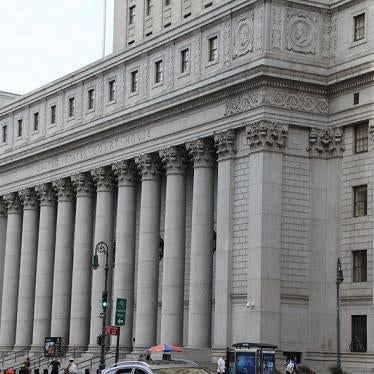Buried in the confirmation hearings record of former US Central Intelligence Agency Director Mike Pompeo is an alarming observation about US surveillance that has never received the level of attention it deserves.
A ruling today by the European Court of Human Rights ought to change that.
In January 2017, US Senator Ron Wyden noted in a written question for Pompeo – now US Secretary of State -- that even if the CIA does not directly ask another government for surveillance data, it can still receive “targeted collection against, or bulk collection that includes the communications of US persons.”
Wyden went on to flag that the data vacuumed up by foreign agencies “could include the communications of U.S. political figures and political activists, leaders of nonprofit organizations, journalists, religious leaders, businesspeople whose interests conflict with those of President Trump, and countless innocent Americans.”
In other words, the US may not specifically request foreign data about its own citizens in a way that ignores US protection standards – but it can sit back and receive such data without asking for it. The intelligence agencies might even get the data in bulk, as Pompeo had previously acknowledged.
The European Court of Human Rights said today in Big Brother Watch and others v. the United Kingdom that countries should have specific, rights-protecting laws governing their requests of surveillance data from other governments. While the court doesn’t have jurisdiction over the US, it made an important point that is true everywhere: if authorities can simply request surveillance data from other countries at will, they could easily avoid privacy protections in their own laws.
Human Rights Watch, which submitted a brief to the court on the issue of intelligence-sharing, was disappointed to see the court duck the important issue of whether this ruling applies to surveillance data a state receives through an intelligence-sharing program without making specific requests. But logically, the same concerns and human rights standards apply.
US surveillance threatens the rights of people worldwide – not just US citizens or others in the United States. And if the authorities can sidestep restrictions imposed by Congress or the US courts by letting other governments do the dirty work, that would circumvent crucial checks on their spying powers. Lawmakers should sit up and take notice.








